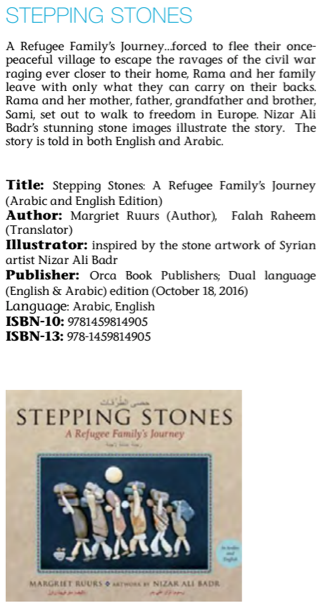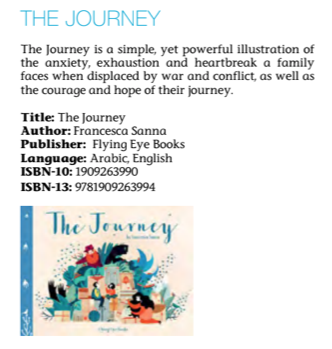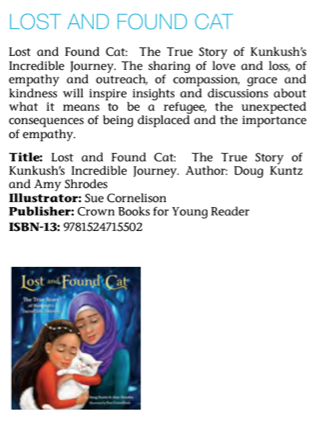Connecting Through Journeys of Understanding
Stories of refugees, forced to flee their homes, their lands and their lives as they know them, are in the news almost every day. While we may wish that our children didn’t have to know about such trauma, the facts are that it’s real and very present — and there are countless children actually living it.
An awareness of these stories can help children empathise with and begin to understand the back-story of many new to our communities. Stories can facilitate dialogue and promote healthy communication on this difficult topic. They may even inspire readers to take action to ensure safe and welcoming environments in their own communities. These three outstanding books bring a variety of insight allowing children to gently begin to understand what it is to be a refugee.



The following activities can be done with any of these stories. The repetition will allow for questioning skills to be practiced and become more complex.
Questioning:
1. In small groups, use a What, Where, When, Who, Why and How dice. Children roll the dice and using the question starter make
up a question for the story.
2. For another story, use question starter cards that will prompt more complex questioning, such as How would…? Why did…? Do you
think…? What if…? When could he/she/they…? What else….? What might…?, Etc
3. Role Play: The children act out a scene from the story. At any point, the ‘leader’ says, “freeze.” Children question the characters
and the actors answer the way they think their character would at that point in time.
Vocabulary:
Find words that you might not know the meaning of and use the story context, the surrounding text and illustrations to guess the
meaning of the word. Check your dictionary, thesaurus and other children’s ideas to list the meaning.

Character: Habits of Mind
1. Circle the habits you think the characters in the story had.
2. What habits would help them (why and how)?
3. What habits would the people of the community they settle in need and how would this help the migrants?

